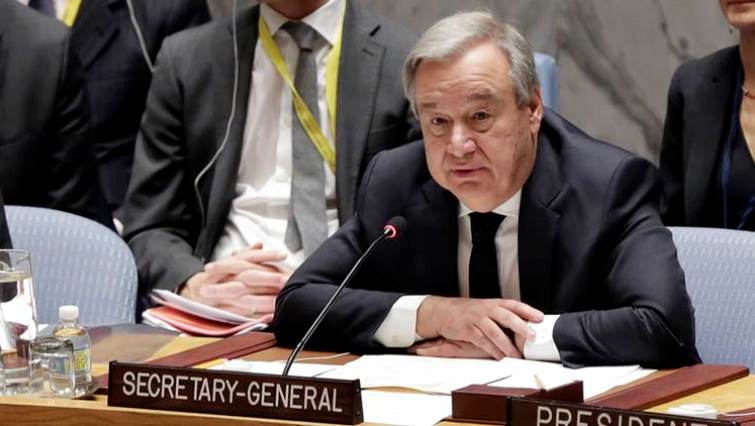The United Nations is facing a cash flow problem due to member states not meeting their funding obligations on time.
In a letter sent to both UN staff and member states, Secretary General Antonio Guterres explains that the new cash shortfall is unlike those experienced in previous years with the organisation’s current liquidity much lower compared to this point in previous calendar years.
The letter warns that the UN Secretariat will have exhausted the cash in the Regular Budget General Fund the Working Capital Fund and the Special Account by the end of August unless further contributions from member states are received.
In the letter to member states, obtained by SABC NEWS, the UN Chief calls their financial predicament unfortunate and unsustainable – warning that the low cash flow is putting the operations of the organisation at risk.
UN Spokesperson Stephane Dujarric explains, “The SG has written to staff today basically outlining the concerns that he has sent on to member states about the troubling financial situation that the organisation is in.
“The issue is really late payments and payments not yet received to the regular budget. We often at this time of year receive a shortfall but unlike those we’ve had in previous years, the cash flow has never been this low so early in the calendar.”
The administrative and budgetary committee of the UN General Assembly decides on the scale of assessments for contributions to the regular budget for each of the 193 member states. The scale of assessments reflects a country’s capacity to pay measured by factors such as national income and the size of its population.
So far in 2018, 112 member states have paid their assessed contributions including South Africa, leaving 81 member states that have yet to pay – including the organisations largest contributor the United States.
“The cash shortfall is due to the fact that only 67% of member states have paid their budget dues in full. The way this works is that there’s a budget, we plan for the budget but we don’t get the money to implement that budget at the start of the budget cycle. So that creates a challenge.
“We don’t have the same tools that national governments have to control their own budget so we have mandates that need to be implemented and activities that need to be done but the money just trickles in and we’ve always worked around that because we’ve always planned for that but this year the drought is coming earlier and harder than it has in the previous years.”
The UN Secretary General has appealed to all member states that have not yet paid their assessed contributions to do so in full, without delay, as set out in the Charter of the United Nations. His spokesperson Stephane Dujarric explains that cutting costs is always part of the conversation.
“No-one at this point is talking about cuts, we’re not trying to sow alarm, it’s a reminder to member states that we don’t have the same flexibility as governments in terms of controlling income and timing of income. The member states set a budget, they vote on a budget, we then rely on member states to pay their dues in full and on time.
“Obviously we fully understand that some member states have different budgetary and calendar fiscal years, so that has an impact, but the year is worse than others.”
The SG concludes his communiqué by saying it pains him to write such letters, explaining that an Organisation such as the UN should not have to suffer repeated brushes with bankruptcy.


